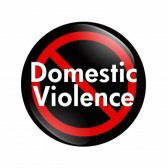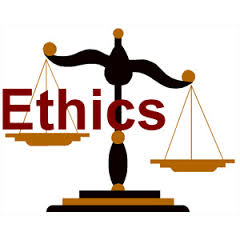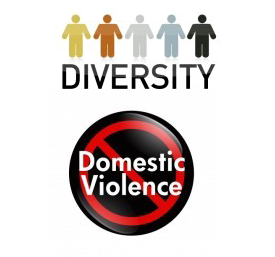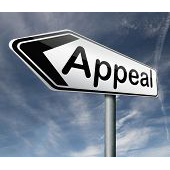- 2023, August 4, DRC, Dispute Resolution Center Conference, Video Download Only
- 2022, August 11-13, DRC, Dispute Resolution Center Conference Recordings
- 2021, August 11-13, DRC, Dispute Resolution Center Conference - Video Download Only
- 2020, August 13-15, DRC, Dispute Resolution Center Conference Recordings - Video Download Only
- 2019, August 15-17, DRC, Dispute Resolution Center Conference Recordings
- 2018, August 9-11, DRC, Dispute Resolution Center Conference Recordings
- 2017, August 10-12, DRC, Dispute Resolution Center Conference Recordings
- 2016, August 11-13, DRC Dispute Resolution Center Conference Recordings
- 2015, July 30-August 1, DRC, Dispute Resolution Center Conference Recordings
- 2014, August 14-16, DRC, Dispute Resolution Center Conference Recordings
- 2013, August 9-10, DRC, Dispute Resolution Center Conference Recordings
- 2012, August 23-25, DRC, Dispute Resolution Center Conference Recordings
- 2011, August 25-27, DRC, Dispute Resolution Center Conference Recordings
- Catch All Category
Product Categories
Filter by price
A01, Featured Workshop, Understanding Distortions in Decision Making in Mediation- Douglas Noll (2.1 CME Credits General)
$15.00 – $18.00This workshop will be based upon the work of Nobel Laureate Daniel Kahneman and will introduce participants to the concepts of System 1 and System 2 thinking in human brains. Distorted decision making in the face of stress, risk, uncertainty, and high emotion is normal in mediation. Mediators will be given guidance in how to minimize distortions. The speaker will offer explanations as to why mediators are essential in dispute resolution.
A04, Corporate Monitoring as a Dispute Resolution Option in Complex Commercial Cases by Melanie Ann Hines and William Shepherd (2.1 CME Credits General)
$15.00 – $18.00This presentation proposes the inclusion of corporate monitors in settlement agreements negotiated by mediators or recommended by arbitrators, in complex commercial disputes where injunctive relief of complex financial arrangements are contemplated. The presenters will discuss the history of corporate monitoring and will address the issues of selection, compensation, and supervision of corporate monitors. Sample corporate monitor agreements from specific criminal cases will be provided and discussed.
A05, Disability Awareness Accommodating A Person with Disabilities in Mediation, Important Things You Probably Forgot to Consider by Eric Dunlap and Ginger Malcom (2.1 CME credits in Cultural/Diversity Awareness)
$15.00 – $18.00This presentation will feature information about methods for interacting with mediation participants with disabilities, and addressing details that are often overlooked. For example: how to obtain signatures from a person who cannot use his/her arms or who cannot see where to sign the document; how to ensure that a person understands the documents or communications occurring at mediation if their vision or hearing is impaired, etc. Attendees may be given an opportunity to experience some of the challenges with which a person with disabilities may be faced during a mediation session.
A06, Domestic Violence for County Mediators by Carol Williams (2.1 CME Credits Domestic Violence)
$15.00 – $18.00This presentation will review ways in which a mediator can unfold and handle problems that one might have during mediation.
A08, Establishing and Operating an In-House Dispute Resolution Program by Jane L. King (2.1 CME Credits General)
$15.00 – $18.00This presentation will include background information regarding the essential elements of an in-house dispute resolution program. Discussion will include the ethical and objectivity aspects of the program, review the ultimate success of the Program and discuss the use of the Program as a model for other in-house dispute resolution programs.
A09, Ethical Considerations Conflicts of Interest Impartiality and Self-Determination by Gregory Hoffman, D. Robert Hoyle and William Christopher (2.1 CME Credits Ethics)
$15.00 – $18.00This presentation is designed to provide attendees with a better understanding of the integration of Florida’s impartiality, self-determination and conflict of interest rules, MEAC Opinions and appellate court decisions relating to mediators and arbitrators. The difficulties with the disclosure and resolution of conflict of interest issues with parties and potential unrelated third parties (e.g., potential witnesses) will be explored. The presenters will show how various decisions and opinions connect impartiality, self-determination and conflicts of interest rules in ADR proceedings. Discussion will also center on which conflicts of interest are waivable and which are not waivable.
A12, The Latest Research Trends and Interventions in Family Violence by Judith McKay (2.1 CME Credits Domestic Violence)
$15.00 – $18.00This workshop will present recent research and perspectives on family violence. It will explore and define the typology of family violence on mediation and the need for enhanced mediator knowledge and skills. The workshop will include multi-modal and multicultural perspectives, how to access community resources, and how to interact with other helping professionals in family violence cases and issues.
A13, Mandatory Reporter Training by the Florida Abuse Hotline by Nana Gatlin and Zandra Odum (2.1 CME Credits Domestic Violence)
$15.00 – $18.00The workshop will open up with an overview of the Florida Abuse Hotline that will provide a look into the daily operation, reporting statistics, services provided and the call handling process. The presentation will provide information concerning who is required to report abuse or neglect, what is required of mandated reporters when making a report, what is an acceptable means to locate the victim and identify report acceptance criteria. In addition, the participants will be provided resources on how to obtain mandatory reporter training in their communities.
A14, MEAC Opinion Workshop and Update by Charles N. Castagna (2.1 CME Credits Ethics)
$15.00 – $18.00Participants will be given written copies of the most recent questions posed to the MEAC together with the authorities cited and referred to by the MEAC. The group will then discuss and share their opinions as to what the outcome should be.
A15, Multi-Party Mediation A Map through the Land Mines by Alvin Capp and Panelists (2.1 CME Credits General)
$15.00 – $18.00This presentation will explore and address issues that come with multiparty mediation, which often require that a mediator conduct multiple simultaneous mediations. These mediations present significantly heightened complex difficulties and conflicts not found in the simple one plaintiff / one defendant mediation.
B01, Featured Workshop Mediation in Germany by Gisela Wachinger (2.1 CME credits in Cultural/Diversity Awareness)
$15.00 – $18.00This workshop will describe mediation and its growth and use in Germany. The similarities and differences in German law and Florida law regarding mediation will be examined. Director of the DRC, Janice Fleischer, will assist with the presentation. Audience interaction with the presenter will be encouraged through a question and answer format.
B02, Affect Labeling Creating Effective Empathic Connections to De Escalate Emotions by Douglas Noll (2.1 CME Credits General)
$15.00 – $18.00This workshop will focus on high emotions including studies by Matthew Lieberman at UCLA for effective techniques for de-escalating high emotions. Mediators will learn about the technique of affect labeling. Mediators will have an opportunity to watch demonstrations and practice the technique.
B03, Best Practices to Increase Your Market Value Avoid Grievances and Spot and Handle Diversity Dynamics that Affect Mediation Negotiations by Rodney Romano, Theodore Deckert & Richard Wennet (2.1 CME Credits General)
$15.00 – $18.00The presentation will include a handout in outline form and will begin with an audience input session to gauge specific aspects of ADR on which the participants would like to focus. Discussion will continue by covering marketing, getting cases, developing creative openings and people skills, assessing participant needs and closing techniques. Additionally, the presentation will include an interactive exploration of how cultural issues (race, religion, gender, sexual orientation) affect the decision making process during negotiation.
B04, Co-Parents at War Child-Proofing the Trenches by Lori Frazier (2.1 CME Credits General)
$15.00 – $18.00Parents often seek a parenting plan that is “fair,” while feelings of anger, resentment, and blaming their co-parent or the legal system may still be present and compound the problem. Parental attitudes and expectations of fairness, the expectation that common sense and pragmatism are sufficient for decision making, and the expectation that leaving it up to the child to decide is a valid course of action will be discussed.
B05, Domestic Violence within the LGBT Community An Exploration of Myths and Misconceptions by John Dorris (2.1 CME Credits Domestic Violence and Cultural/Diversity Awareness)
$15.00 – $18.00The presentation will provide an overview of domestic violence in the LGBT community. While national statistics and information will be discussed, the major emphasis will be placed on Florida. The presentation will show that the issues are both different and similar to domestic violence within the heterosexual population and will further explore additional myths and misconceptions to provide a thorough overview of the topic. The presentation will conclude with a discussion on effective actions to take for survivors and those that care for them.
B06, Elements of Appellate Mediation by Beth Greenfield-Mandler (2.1 CME Credits Appellate)
$15.00 – $18.00This session will offer an approach to preparing for appellate mediation as well as analyzing typical appellate cases.
B07, Exploring How Personality and Communication Affect Negotiation by Charles C. Ward (2.1 CME Credits General)
$15.00 – $18.00This workshop will analyze the impact that personality and communication have on the negotiation process using the concepts of perception, framing, cognitive biases in negotiation, and basic models of communication.
B08, Frontiers in Mediation in a Globalized World by Lynn Cole (2.1 CME credits in Cultural/Diversity Awareness)
$15.00 – $18.00This workshop will focus on the rapid growth of mediation globally resulting from the intersection of the Rule of Law with shrinking world economies.
B09, How a Mediator Can Use the Attorneys for the Parties to Facilitate a Settlement by Marc Sinensky (2.1 CME Credits General)
$15.00 – $18.00This presentation focuses on the mediator educating the parties’ attorneys about their role in preparing for and participating in a mediation as many advocates view the mediation process as merely a continuation of the litigation process. This workshop will show the mediator how to help the advocate recognize they need to play a different role to help facilitate a settlement.
B12, Special Considerations in Mediating Probate and Commercial Disputes by Edmund Sikorski Jr. (2.1 CME Credits General)
$15.00 – $18.00Unlike Family, Tort and Home Owner Association/Developer mediation where the focus is on termination of relationships, commercial mediation, somewhat like probate mediation, should focus on the opportunity for reconciliation and additional business between the parties. The commercial mediation opportunity should be seen as a place to structure future relationships NOT terminate and preclude future relationships.
B13, Special Education Mediation Understanding the Frameworks by Dr. Mary Bruck (2.1 CME credits in Cultural/Diversity Awareness)
$15.00 – $18.00All public school districts in the U.S. must offer mediation as one of the alternative dispute resolutions for special education disputes. Many certified mediators who mediate in special education are baffled by the special education process and terms as well as the Individual Educational Plan (IEP) procedures. This presentation will serve as a vehicle to demystify background information which mediators will encounter.
B14, Tips and Techniques How to Break Impasse by Renee Thompson and Christine Harter (2.1 CME Credits in Ethics)
$15.00 – $18.00Parties often say they are done negotiating, but really desire the mediator’s continued efforts bringing the other party a bit closer to resolution. How does the mediator continue when one party says they are done? What ethical considerations are involved?
B15, Two Heads Are Better Than One A Team Approach to Mediation by Leonard Helfand and Leonia Maresch (2.1 CME Credits General)
$15.00 – $18.00The presenters will provide an explanation and give the historical background of team mediation. The presenters will discuss the current utilization of team mediation in the U.S. and internationally and will not only demonstrate the enhancement, balance, and diversity resulting from team mediation but will model how the cooperation of the mediators can enhance the prospects for settlement.
C01, Featured Workshop The LGBT Family Issues Which All Mediators Should Know by Elizabeth Schwartz (2.1 CME credits in Cultural Diversity)
$15.00 – $18.00This workshop will delve more deeply into the issues which come up for LGBT families in Florida. Special focus will be placed on family formation issues (adoption, insemination, surrogacy) as well as dissolutions. An update on the law regarding adoptions will be provided. The impact of living in a state which has no relationship recognition will also be discussed, including providing attendees with some insight into how couples can protect themselves and their loved ones as well as how they can dissolve their unions should that be necessary.
C02, Apology Forgiveness and Redemption as Tools for Resolving Disputes by George Knox (2.1 CME Credits General)
$15.00 – $18.00This presentation will include a discussion of the different dimensions of an apology. When an apology is given, more is needed than a mere “I’m sorry.” The efficacy in apology lies within addressing the layers of impact. When an effective apology is provided, there is an opportunity for the release of grudges and for accountability to be assumed. This diminishes barriers to negotiation and facilitates settlement.
C03, The Direct Inferential Communication Model Are You Hearing What I Am Saying Am I Saying What You Are Hearing by Michael Holler (2.1 CME Credits General)
$15.00 – $18.00The Direct/Inferential model of communication explains how people both speak and listen in ways that are clearly stated and in ways that are transmitted and received nonverbally. Participants will explore how to utilize this knowledge to best keep parties engaged. The model has as a goal the minimization of errors in communication which often result in misinterpretations.
C04, Discovering Your Creative Vision A Creativity Workshop for Mediators and Arbitrators by Aric Attas (2.1 CME Credits General)
$15.00 – $18.00Discovering Your Creative Vision is a unique creativity program that uses photography to challenge the perceptions and creative limitations of the participants. With today’s technology, almost everybody has a camera with them. This seminar taps those cell phone cameras (or digital cameras if participants would rather) to discover ways of thinking creatively. Using a variety of camera strategies, participants will be exposed to a unique perspective while the presenters assists the participants in developing insight and fostering innovation while demonstrating how to bring these ideas into our work as mediators.
C05, DV Same-Sex Relationships by Athea Antoine (2.1 CME Credits Domestic Violence)
$15.00 – $18.00This presentation will discuss the history of domestic violence and the horrific effects it has on immediate victims and others. The presentation will focus on domestic violence in homosexual relationships. Participants will discuss proper demeanor while mediating in this kind of situation.
C06, Everything I Know About Mediation I Learned on the Internet by Michael Bloom and Jim Todd (2.1 CME Credits General)
$15.00 – $18.00This presentation will provide a broad overview of a variety of mediation subjects through the use of videos which are seemingly unrelated to the area of mediation. After each video, the presenters will provide the participants with the governing mediation rules, where applicable, as well as solutions and tips to deal with real life situations. Participants will also be encouraged to offer their own stories, thoughts and solutions.
C09, Going the Extra Mile with Frequent Filers Suggestions from a Magistrate and Family Mediator by Michael Lang and Susan Maulucci (2.1 CME Credits General)
$15.00 – $18.00The presenters will discuss the unique challenges presented by post-divorce disputes and offer suggestions for resolving these difficult conflicts. Having hoped or believed that the issues in their divorce were finally resolved, parties find that even years after the end to their marriage, conflicts arise. Unless clearly resolved, these post-divorce conflicts result in multiple filings, multiple mediations and multiple court appearances.
C10, Improving Party Engagement in the Mediation Process An Insightful Approach by Gregory Firestone (2.1 CME Credits General)
$15.00 – $18.00Participants will be invited to actively listen to statements which are being made that are contrary to the values of a mediator. Participants will be invited to explore how they respond in mediation to objectionable comments made to them when they are mediating. After understanding the importance of personal feelings in the mediation process, participants will be provided with methods for understanding party differences and be given an opportunity to engage parties with distinctly different styles in brief role-play vignettes.
C11, Language as a Tool for Conflict Resolution The Power of Metaphor and Discourse Analysis by Howard Marsee (2.1 CME Credits General)
$15.00 – $18.00This workshop will explore the areas of cultural metaphor, speech paradigms, metonymic systems, “speech events” and discourse analysis as they relate to conflict resolution. It is designed to increase sensitivity to the subtleties and complexities of spoken interaction and to their sometimes unintended effects on conflict resolution.
C12, Mediation The Dance and the Deal by Stephen Sawicki (2.1 CME Credits General)
$15.00 – $18.00The purpose of this presentation is to provide the mediator practitioner with perspective and practice pointers, examine and analyze each component of negotiation and the mediation process and share ideas in connection with the business aspects of the mediation profession.
C14, The Power to Persuade by Robin Lavitch (2.1 CME Credits General)
$15.00 – $18.00This workshop will provide information on shifting people from resistance to a willingness to take action. The workshop will introduce mediators to ways to instantly develop rapport and formulate positive impressions by creating an environment that fosters collaboration. The workshop will review the cycle of persuasion while reviewing the core elements mediators can develop to position themselves to yield productive solutions. The cycle of persuasion is integrated with the subtleties of body language including facial expressions, gestures and other body movements. The aim of this knowledge is to assist mediators in modifying interactions based on what is being communicated directly and indirectly.
C15, Understanding Me Understanding You by Teeluck Persad and Evelyn Pabon Figueroa (2.1 CME credits in Cultural/Diversity Awareness)
$15.00 – $18.00This session will raise awareness of the cultural similarities and differences between identifiable groups so that mediators can better understand the participants during mediation. Participants will explore ways for a mediator to help the parties from different cultures communicate with each other more effectively during a mediation session.
C16, Yoga for Mediators by Alexandra (Sandra) Hedrick (2.1 CME Credits General)
$15.00 – $18.00This workshop explores the ways that yoga may help a mediator grow in awareness of the parties’ needs and interests in order to facilitate creative and flexible solutions based on self-determination. In addition to joining in the discussion, participants will have the option of joining in simple yoga movements from their seats.
PL1, Opening Plenary and Keynote, The Power of Peacemaking by Douglas Noll (2.1 CME Credits General)
$15.00 – $18.00In this inspirational talk, Douglas Noll, a nationally recognized speaker and full time peacemaker and mediator specializing in difficult, complex and intractable conflicts, will lead attendees on a journey of peacemaking through the stories of some powerful peacemakers: from Alissa Sears, who responded to the post-tsunami disaster relief in Sri Lanka, to Kimmie Weeks left for dead at 9 years old in a Liberian refugee camp, to the remarkable story of murderers becoming peacemakers. Doug will demonstrate how every person has the power to be a peacemaker and that mediating is not all about settling cases but rather the profound effect mediators have on the world if they choose to do so.
PL2, Friday PM Plenary Legal Issues of the LGBT Community An Overview for Mediators by Elizabeth Schwartz (1.2 CME credits in Cultural/Diversity Awareness)
$15.00 – $18.00Elizabeth Schwartz, Esq. will give an overview of the unique legal and social issues facing the Lesbian, Gay, Bisexual and Transgender (LGBT) communities. A survey of the state of the law as it relates to LGBT rights nationally and statewide will be provided as will tips on dealing with the LGBT population, including suggestions for being a culturally competent mediator. Specific legal issues will be addressed including those related to the areas of estate planning, immigration, criminal defense, real estate, corporate entities, and family law.






